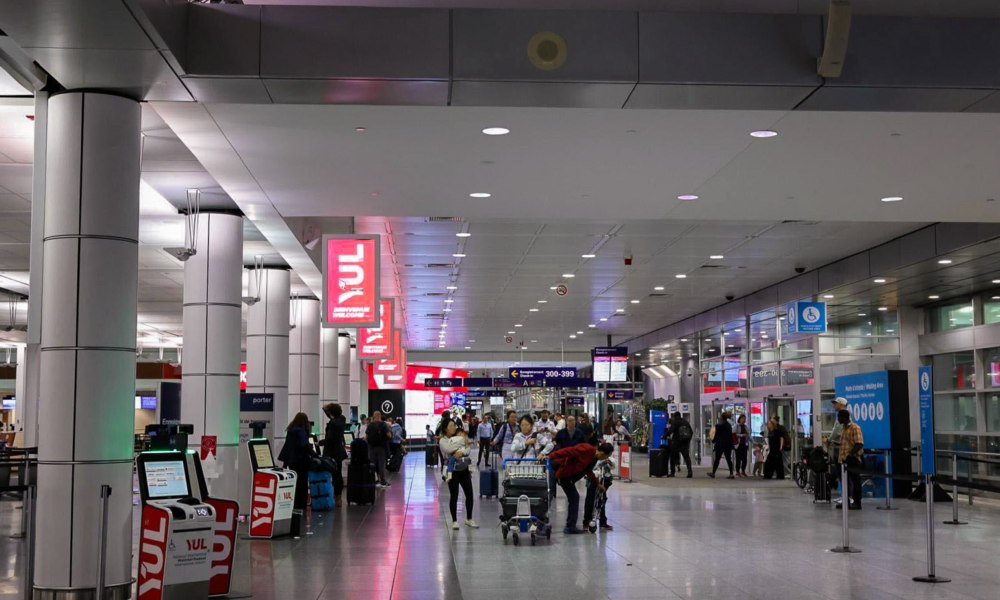On Saturday, Aug. 16, over 10,000 flight attendants went on strike in protest of Air Canada’s longstanding refusal to pay employees for their “ground work,” a term describing the labour obligations flight attendants execute while preparing the aircraft prior to take-off and after landing. The average flight attendant completes over 400 hours of unpaid ground work every year. This disgrace to the Canada Labour Code is a major striker grievance—alongside, more generally, the pursuit of wage and benefit increases. The strike held impressive economic leverage: Air Canada was forced to cancel over 3,000 flights, leading to the disruption of an estimated 500,000 customers’ flight plans and a loss of $40 million CAD in revenue for each day of the strike.
Strikes are a legally protected collective bargaining strategy under the Canadian Charter of Rights and Freedoms. Their ability to create profit-related discomfort for recalcitrant corporations is a widely accepted method of achieving just outcomes in the face of employer-employee power imbalances. Yet, a mere 12 hours after the Air Canada strike began, Minister of Jobs and Families Patty Hajdu declared the strike unlawful for its interruption of Canadian industrial activity, issued a back-to-work order, and forced the two parties to enter binding arbitration. Thousands of flight attendants elected to defy Hajdu’s orders and continue striking, but the question remains: Why should the Government of Canada feel empowered to union-bust due to economic disruption, a fundamental feature of strikes?
Hajdu’s power is derived from Canada Labour Code Section 107, through which Ministers in her position—via the Canada Industrial Relations Board (CIRB)—can force the end of strikes and declare mandatory negotiation periods in cases of major harm to Canadian industry. This is not the first time meddling legal action by the Canadian government has interrupted a strike: Section 107 has been invoked in several other labour disputes, including the recent Canada Post strike in 2024. Hajdu is not incorrect to interpret the hundreds of millions of dollars lost due to the strike as constituting an event with profound impact on Canadian business. However, her choice to invoke Section 107 does not speak to an empathy with travelers who endured flight cancellations nor to a dire urgency to resume air travel. Rather, the issuance of a back-to-work order reveals a disturbing governmental distaste for union activity. After all, weather has shut down airports in Canada for longer than the government allowed Air Canada flight attendants to strike.
Overuse of Section 107 has systematically undermined workers’ rights for over 40 years, most principally the right to free and fair collective bargaining as guaranteed under the Canadian Bill of Rights. However, as is evidenced by the Air Canada flight attendants union’s continuance of their strike, Section 107 is no longer even enforceable. By striking despite the threat of legal consequences, the Air Canada flight attendants have proven that unions need not capitulate to institutional intimidation—a precedent that will shape the behaviours and strategies of labour associations for decades to come.
Furthermore, the Air Canada strike has revealed that unions achieve more equitable deals through inter-party discourse than through deals influenced by government intervention. In the days following the flight attendants’ defiance of the CIRB’s back-to-work order, the airline pledged a 38 per cent overall increase in wages alongside an offer of ground pay at 50 per cent of the employees’ hourly rates. Although the Air Canada union ultimately declined this offer, seeking 100 per cent compensation for their work on the tarmac, the unprecedented magnitude of this tentative deal speaks to the increased bargaining capacity made available to the union through persistent striking in the face of government-led union-busting.
So, McGill students, when you find yourself stuck for hours in YUL due to strike-related flight cancellations, or even waiting for classes to resume during the next faculty union strike, remain supportive and empathetic. The inconvenience of a delay pales in comparison to the cruciality of fair working conditions. In fact, union members and employers will achieve an equitable resolution more efficiently—and more justly—if they are empowered to engage in free discourse, unhindered by government overstep.









